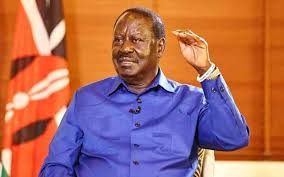These are interesting times in Kenyan politics. I have my own quibbles with the 2010 Constitution, but the more I think about its implications, the more I get convinced that perhaps we should give it more time before we begin tinkering with it.
Take, for instance, what the Constitution is doing to the composition of the political class. For a long time in our history we had largely two kinds of politicians: the regional big men (many of them self-appointed ethnic spokesmen), and their respective errand boys. The big men had actual power and the ear of the president.
The errand boys (and some girls) played the grassroots game. The former group maintained a façade of respectability politics; while the latter group engaged in bare-knuckle politics, sometimes employing the services of hired thugs.
The same structure also defined the flow of patronage. Going with the grain of the colonial inheritance, Mzee Kenyatta maintained a Civil Service that was supreme over the political class. Only Cabinet Ministers could directly and meaningfully alter the behavior of senior Civil Servants. Everyone else had to go through the Cabinet Minister to get cheap loans, roads fixed, a school constructed, or a hospital repaired. This included other junior politicians – including sitting MPs.
This kind of arrangement ensured that the Kenyan state was largely protected from the ‘thuggishness’ that prevailed in the actual conduct of politics below the level of Cabinet Ministers. It also gave the Kenyan state some semblance of the existence of rule of law. Even under Moi the system endured.
The system was by no means perfect. But it brought about stability because of the authority of senior politicians over their subordinates. And very importantly, the triumph of the senior politicians ensured that the Kenyan state maintained its distinctively conservative orientation.
Now all this is changing. The 2010 Constitution democratised patronage at the political elite level. By creating numerous constitutional offices, with guaranteed resources, the Constitution leveled the playing field within the political class in a revolutionary manner.
What we now have is a system in which no single office (or a few offices) has a monopoly over patronage. The MPs have their CDF. The governors have county budgets to play around with. And MCAs can get free cash simply by faking travel. No longer do these second and third tier politicians have to kowtow to the big men at the national level. The full implications of this seismic shift in the politics of patronage will only be apparent come the next General Election.
But the signs of what is to come are beginning to show. First, it is going to become harder to control the second and third tier politicians. It used to be the case that whole communities would fall in line and sing the tune sang by their chosen ethnic spokesman.
That has changed. Governors Munya, Ruto, Kidero, and even Keter, Sonko, and the Narok MPs are now independent men who can dare to chart their own political futures independent of their respective self-appointed ethnic chiefs at the national level. The only politicians that remain largely under the control of ethnic chiefs are Senators (with the exception of Sonko). But even they, if they are smart, will free themselves from the tyranny of ethnic kingmakers.
Second, the rule of law is bound to take a hit in the short term. Kenya has historically enjoyed a semblance of rule of law in no small part because of the hegemony of the top tier political class. In the current free for all system, things are bound to get out of hand. Populist politicians will use their sway with the public to defy the state’s inherent ideology of order, ruler of law, and a conservative economic orientation.
Others with total disregard for the rule of law will seek to use their positions to get ahead economically. Because of the weakening of the old mechanism of control through patronage, it will become harder for senior politicians to keep these upstarts in check.
Lastly, it is likely that the new equalisation of opportunities for patronage will bring forth a new kind of faux populism that will weaken the state even further. We have already started witnessing the beginnings of it in Nairobi, where the County Senator personally provides an assortment of public goods.
This strategy is no doubt designed to encourage dependency on the person of the Senator, and not strengthen the public services infrastructure in the County. It is also a kind of populism that turns Wananchi into tools of specific politicians, as opposed to citizens with a rightful claim to public services in return for taxes levied by the government.
If I were a Raila, Kenyatta, Kalonzo or Ruto, I would be worried.
Stay informed. Subscribe to our newsletter
 The Standard Group Plc is a
multi-media organization with investments in media platforms spanning newspaper
print operations, television, radio broadcasting, digital and online services. The
Standard Group is recognized as a leading multi-media house in Kenya with a key
influence in matters of national and international interest.
The Standard Group Plc is a
multi-media organization with investments in media platforms spanning newspaper
print operations, television, radio broadcasting, digital and online services. The
Standard Group is recognized as a leading multi-media house in Kenya with a key
influence in matters of national and international interest.
 The Standard Group Plc is a
multi-media organization with investments in media platforms spanning newspaper
print operations, television, radio broadcasting, digital and online services. The
Standard Group is recognized as a leading multi-media house in Kenya with a key
influence in matters of national and international interest.
The Standard Group Plc is a
multi-media organization with investments in media platforms spanning newspaper
print operations, television, radio broadcasting, digital and online services. The
Standard Group is recognized as a leading multi-media house in Kenya with a key
influence in matters of national and international interest.







